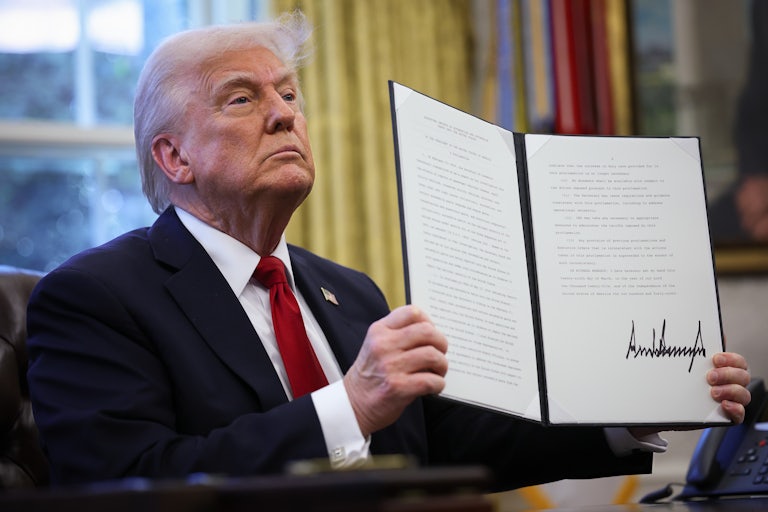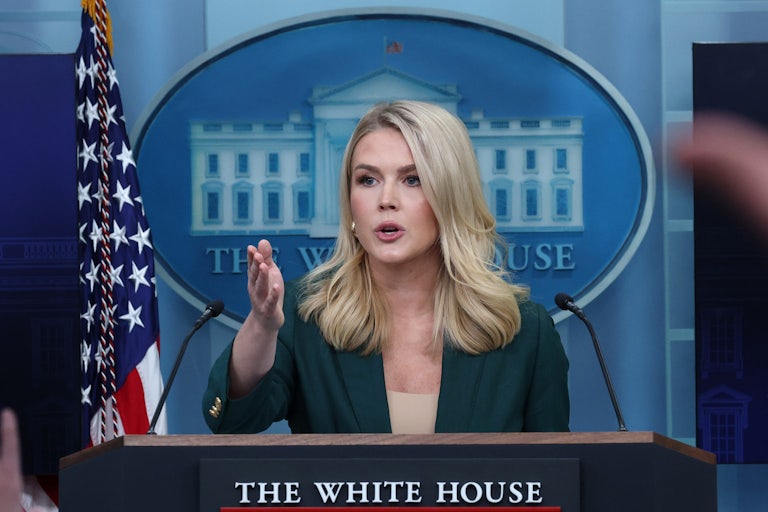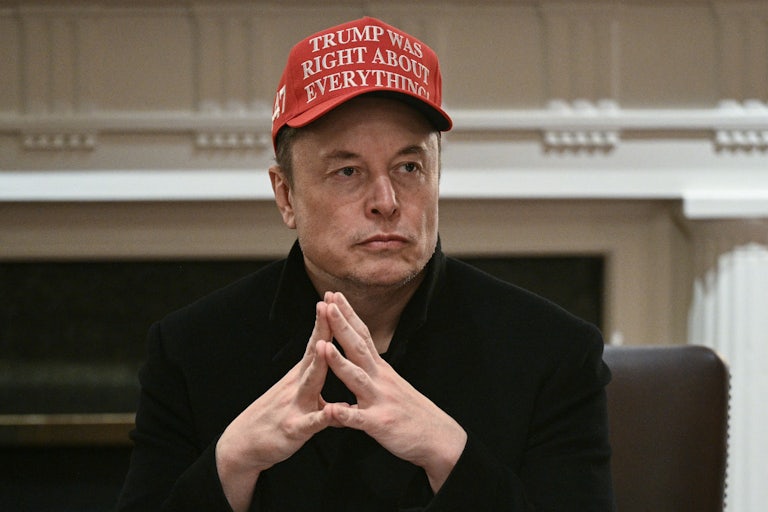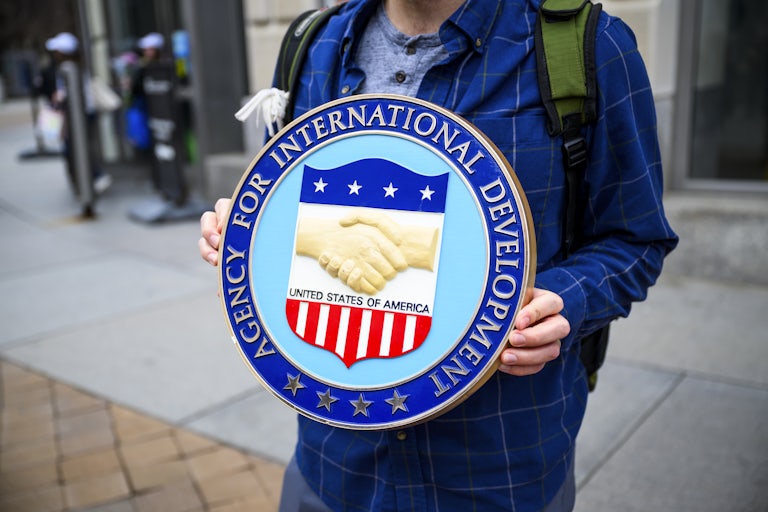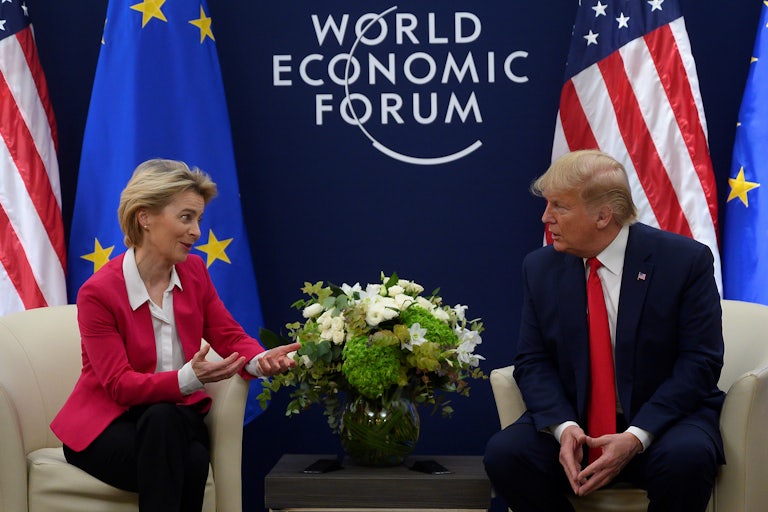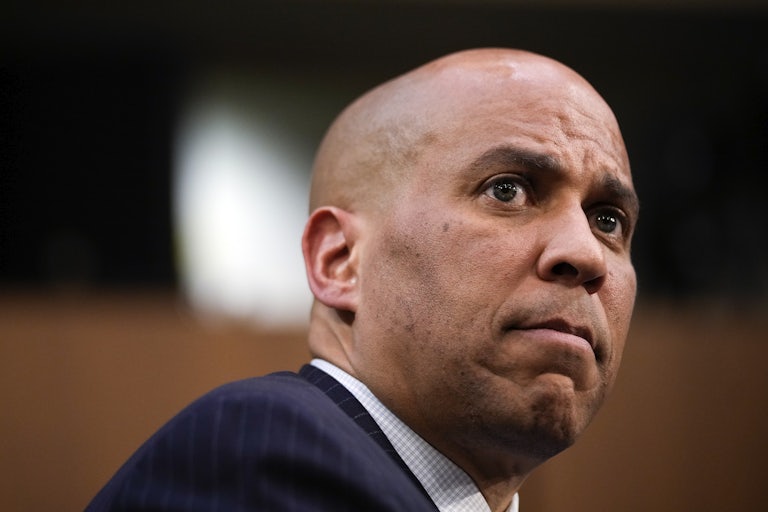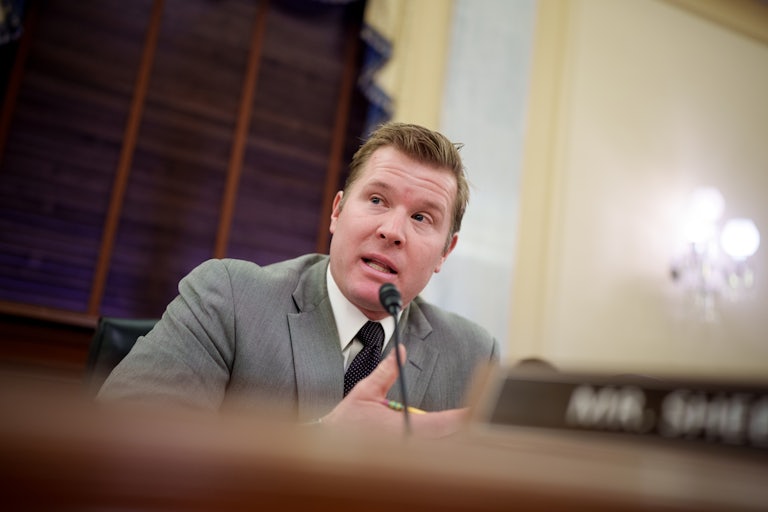Putin Suddenly Gives Trump the Middle Finger on Ukraine Peace Talks
Russia has poured cold water on Donald Trump’s efforts to end the war in Ukraine.
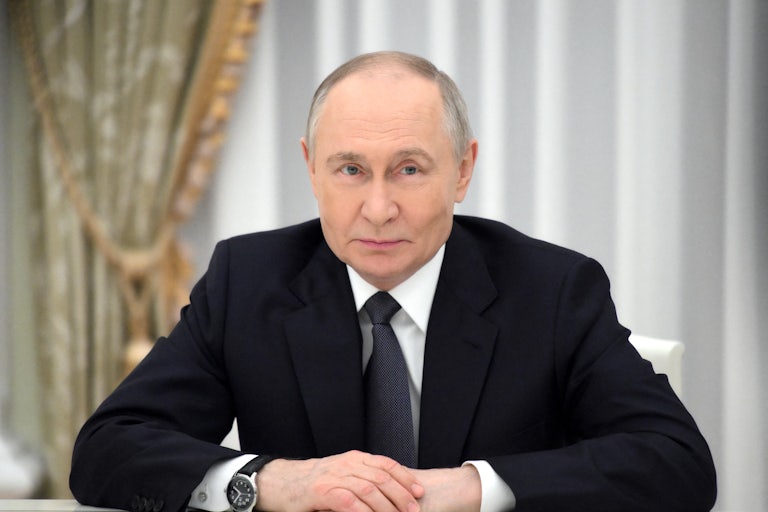
Surprise, surprise: Russia has not turned out to be a reliable negotiating partner in ending the war in Ukraine.
Peace talks between the United States and the world power have seemingly stalled, Reuters reported Tuesday.
The interrupted discussion suggests that the White House and the Kremlin have been unable to broker a new deal since Russian President Vladimir Putin objected to America’s last proposal some two weeks ago.
Moscow “cannot accept” the current proposal to end the war because it fails to address problems that the Kremlin believes to have caused the conflict, Deputy Foreign Minister Sergei Ryabkov said in an interview published Tuesday with a Russian state-sponsored magazine, International Affairs.
“We take the models and solutions proposed by the Americans very seriously, but we can’t accept it all in its current form,” Ryabkov said. “As far as we can see, there is no place in them today for our main demand, namely to solve the problems related to the root causes of this conflict. It is completely absent, and that must be overcome.”
Kremlin spokesman Dmitry Peskov indicated on Tuesday that a breakthrough in talks between the nations “isn’t imminent,” according to PBS.
“The issues that we are discussing in connection with the Ukrainian settlement are quite complex, and they require a lot of additional efforts,” Peskov said during a conference call.
The White House appears to be growing increasingly frustrated with the situation. In a weekend spat more akin to a high school fight than a diplomatic negotiation, Donald Trump told NBC News’s Kristen Welker that he was “pissed off” with Putin over insults the Russian dictator had tossed at Ukrainian President Volodymyr Zelenskiy.
The ordeal inspired Trump to pitch secondary tariffs between 25 and 50 percent on buyers of Russian oil, blaming the nation’s continued efforts to evade an end to the war.
“If Russia and I are unable to make a deal on stopping the bloodshed in Ukraine, and if I think it was Russia’s fault—which it might not be—but if I think it was Russia’s fault, I am going to put secondary tariffs on oil, on all oil coming out of Russia,” Trump said on Sunday.
Trump’s threat followed a call by Putin on Friday in which the Russian ruler demanded a transitional government to be put in place in Ukraine—a threat to Zelenskiy’s leadership, reported Agence France-Presse.
Zelenskiy lambasted Moscow in an address late Sunday, arguing that the Kremlin “blatantly makes a mockery of our partners’ efforts to advance a peace agenda.”
The conflict began when Russian forces crossed the Ukrainian border on February 24, 2022, which Putin tried to justify by falsely claiming that he needed to protect civilians in eastern Ukraine. The U.S. and Russia opened peace discussions at a meeting in Saudi Arabia in February, seeking a conclusion to the three-year war, but from the jump, the assembly conspicuously excluded Ukrainian leadership.
Russia has made a series of demands in order to end the war—which Defense Secretary Pete Hegseth blunderingly signed off on and then gently walked back at a February NATO conference in Munich. At the time, Hegseth said that the administration’s peace talks with Russia had taken several chips “off the table,” including Ukraine’s possible NATO membership (something the military alliance had promised in 2008), the possibility of a U.S. presence in Ukraine to enforce postwar security guarantees, and the end of NATO missions to Ukraine.
Since then, Putin has also insisted on taking complete control of the four Ukrainian regions Russia partially occupies as a result of the war, and that the Ukrainian army be limited going forward.*
European leaders have been watching the negotiations closely. On Tuesday, German Foreign Minister Annalena Baerbock described the deal as a “deadlock” and urged the U.S. not to capitulate to Putin’s “stalling tactics.”
* This article has been updated to clarify how much territory Russia controls.
